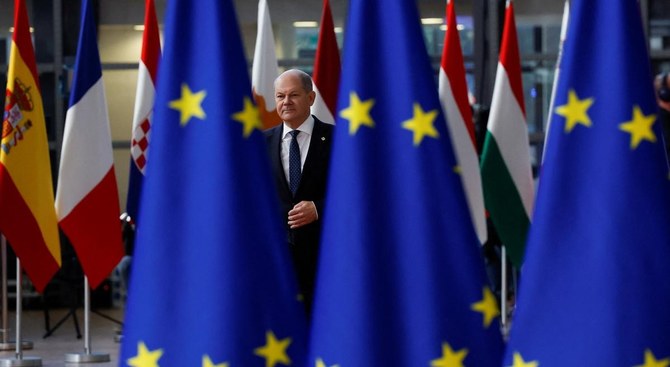Ranvir S. Nayar
When EU leaders met for an informal gathering in Granada in Spain last week, one of the key topics on the agenda dealt with one of the most problematic areas for the bloc – its long-pending enlargement. But when the EU released a press statement after the meeting, the issue was buried at the bottom, dismissed in a paragraph that said the potential future members and the current members alike needed to prepare for the expansion.
The EU has set itself a deadline of 2030, with 10 nations lined up for membership. The discussions on membership have been blowing hot and cold with many of these nations for nearly two decades, most notably with Turkiye, which has been a candidate since 1999, and North Macedonia, which has been waiting since 2005. But the EU has never been united on enlargement and some members have blocked membership talks with specific nations due to bilateral issues. For instance, France had a tiff with Turkiye and ensured that it stayed a perennial candidate country. Similarly, Greece had blocked Macedonia’s candidature until it changed its name to North Macedonia. As recently as October 2019, France had vetoed accession talks with Albania and North Macedonia, citing problems with the process of expanding the EU.
However, it seems that the situation on the ground has changed significantly in the past year or so, especially due to the Russia-Ukraine war, which has pushed even a reluctant France to proactively campaign for a larger EU. It is believed this would help fend off Russian attempts to spread its influence in Europe. Going into the meeting in Granada, French President Emmanuel Macron was one of the most vocal champions of enlargement at the earliest opportunity. He was backed by German Chancellor Olaf Scholz, who urged his fellow European leaders to expedite the membership negotiations for the countries that have been knocking on the EU’s doors, waiting to be let in.
Of the 10 that are in the queue, eight – Turkiye, North Macedonia, Montenegro, Serbia, Albania, Moldova, Ukraine and Bosnia and Herzegovina – already have candidate status and have been holding seemingly never-ending negotiations to define the terms and conditions of their admission. Two more, Georgia and Kosovo, are awaiting candidate status so that they can also launch their own negotiations.
But the meeting in Granada showed the challenges that enlargement holds. First, not all the leaders are keen on enlargement as it would be an extremely expensive proposition. The bloc’s poorer member nations receive more funding each year to help them develop. It is estimated that integrating only one country, Ukraine, would add €186 billion ($196 billion) to the cost over seven years. Taking all the candidate countries in at the same time would leave Brussels with a much larger bill to foot, as most of them have a lower gross domestic product per capita than the bloc’s current poorest member, Bulgaria. With about 35 percent of the EU’s budget dedicated to agriculture subsidies, the arrival of a large farming country like Ukraine would radically shift the current distribution sheet.
But it is not just a monetary question. The enlargement of the EU, with its current decision-making processes, would also make it a huge challenge to envisage how the organization would work. Already, with the current 27 members, it struggles to arrive at many decisions. Most decisions, notably in foreign policy, have to be made by consensus only, which means even a small country, for its own reasons, can hold out, crippling the EU’s decision-making process. The EU can also be tripped up in areas like migration and asylum policy, where decisions can be made by a qualified majority of 15 states, representing 65 percent of the bloc’s population. This was clearly demonstrated at the Granada meeting, where Poland and Hungary joined hands to scuttle any decision.
Thus, if the bloc struggles to reach decisions rapidly when it has 27 members, it would require a major leap of faith to see it functioning smoothly and effectively if 10 more members were to be inducted. So, before the EU rushes into enlargement, which is a prospect very difficult to imagine in the current situation, it would do well to overhaul its internal mechanisms in order to accommodate 10 more members and be a functional body of 37 or more nations. This would be a difficult task, as it would require political leaders to give up grandstanding and think beyond their own petty interests – and even beyond the interests of their own nation, giving precedence to the interests of the European community, even if the two are not really aligned. The decision-making process also needs to be simplified with the introduction of a simple majority, be it on the basis of the number of member states or in terms of overall population. But getting there will require a lot of hard work and sacrifices by all EU members. Currently, few leaders in the community seem capable of doing what is needed, meaning the 2030 deadline for enlargement is almost certain to be missed.







